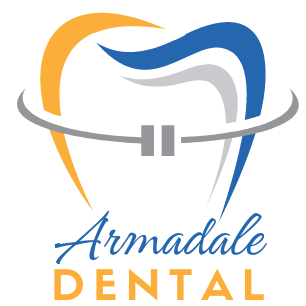Why Do Toothaches Intensify When Lying Down: Exploring Causes and Solutions
Experiencing a toothache is never pleasant, and it can be especially distressing when the pain seems to escalate the moment you lay down to rest or sleep. This phenomenon might leave you wondering why toothaches intensify at night. In this comprehensive guide, we will delve into the reasons behind this nighttime aggravation and provide practical tips and home remedies to manage and alleviate toothaches when lying down.

Understanding Toothaches When Lying Down
A toothache is characterized by pain or discomfort stemming from one or multiple teeth, often caused by factors such as dental decay, infection, or injury. The peculiar aspect of feeling more intense tooth pain when lying down is associated with changes in blood flow and pressure inside the mouth and head.
Common Causes of Worsening Toothaches When Lying Down
Several factors contribute to the aggravation of toothaches during rest. Understanding these causes is crucial in finding effective solutions. Here are common reasons why toothaches may feel worse when reclining:
1. Increased Blood Flow to the Head and Face
One primary reason for heightened toothache when lying down is the increased blood flow to the head. While gravity aids blood distribution when you are upright, lying down allows more blood to circulate to your head and face, potentially increasing pressure and exacerbating pain around affected teeth.
2. Pressure on Sensitive Teeth and Gums
The act of lying down can exert additional pressure on your teeth and gums, particularly if certain areas are already sensitive due to existing dental issues. This added pressure can intensify the pain experienced during a toothache.
3. Sinus Infections and Allergies
For some individuals, toothaches when lying down are closely linked to sinus issues. Sinus infections or severe allergies can cause inflammation and swelling in the sinuses, leading to increased pressure on dental nerves and, consequently, heightened toothache when reclining.
4. Cavities and Decay
Dental cavities and decay are frequent culprits behind toothaches. When lying down, the pain from cavities may become more pronounced. This is often due to exposed nerves in the teeth becoming more sensitive to pressure or changes in blood flow.
Understanding these common causes provides insight into how to address discomfort and take appropriate measures to alleviate toothaches when lying down.
6 Home Remedies for Quick Relief
If you find yourself grappling with a toothache at night, several simple remedies can be tried at home to ease the pain. These methods are easy to implement and can offer quick relief:
1. Elevate Your Head
Use an extra pillow or two to keep your head raised while sleeping. This helps reduce blood flow to your head, potentially lessening the throbbing pain. Maintaining a position where your head is higher than your heart is essential.
2. Rinse With Warm Salt Water
Swishing lukewarm salt water in your mouth can help reduce inflammation and eliminate bacteria. Mix ½ teaspoon of salt in warm water, swish for 30 seconds, and then spit it out. This simple remedy can provide soothing relief for a toothache.
3. Apply a Cold Compress
Place a bag of ice wrapped in a towel against your cheek near the sore tooth. This can assist in reducing swelling and pain. Apply the cold compress for 10-15 minutes, repeating several times daily.
4. Use Over-the-Counter Pain Relievers
Over-the-counter pain relievers like ibuprofen (Advil) or acetaminophen (Tylenol) can be effective in managing toothache pain. Ensure that you follow the recommended dosage and consider alternating between these medications for enhanced relief.
5. Apply Clove Essential Oil
Clove oil is renowned for its pain-relieving properties. Apply a few drops on a cotton ball and gently press it against the sore tooth. Clove oil acts as a natural anesthetic, numbing the area and reducing pain. Reapply every few hours as needed.
6. Avoid Hot or Cold Foods/Drinks
Extremely hot foods or cold drinks can trigger tooth pain. Stick to room-temperature items to prevent exacerbating the pain.
While these remedies can offer temporary relief, persistent toothaches warrant professional attention from a dentist to address the underlying issue.
When to Seek Professional Help
While home remedies can provide temporary relief, it’s crucial to recognize when a toothache requires professional dental care. Seeking timely intervention can prevent the problem from worsening. Consider scheduling a dental appointment if you experience:
- Severe and prolonged toothache: If the pain persists for more than three days.
- Fever accompanying the toothache: A sign of potential infection.
- Difficulty opening your mouth wide: Pain when doing so might indicate a more serious issue.
- Toothache accompanied by earache: These symptoms could suggest a dental problem requiring attention.
What to Expect During a Dental Appointment
When you visit Armadale Dental Implant Center for a toothache, our dentists will conduct a thorough examination of your mouth, inquire about your symptoms, and may take X-rays to identify the root cause of your toothache. Whether it’s a cavity, infection, or another issue, we’ll determine an appropriate treatment plan tailored to your needs.
In cases where a tooth is damaged beyond repair, our professionals might recommend a dental implant. This procedure involves replacing a damaged tooth with an artificial one that closely mimics the appearance and function of a real tooth. The decision to undergo a dental implant will be guided by the severity of the issue, and your dentist will provide detailed guidance.
Tips for Maintaining Good Oral Hygiene
Preventing toothaches and other dental problems involves maintaining good oral hygiene. Follow these tips to keep your teeth and gums healthy:
- Brush your teeth at least twice daily: Use fluoride toothpaste to ensure thorough cleaning.
- Floss after every meal: This helps remove plaque from areas your toothbrush can’t reach.
- Adopt a balanced diet: Limit sugary snacks and drinks.
- Avoid harmful habits: Refrain from smoking or using tobacco products.
- Regular dental check-ups: Visit your dentist for cleanings and check-ups to address potential issues early.
- Be mindful of triggers: Recognize and avoid triggers like extremely hot foods and cold drinks.
By incorporating these simple steps into your routine, you can promote good oral health and reduce the risk of developing toothaches.
Let Armadale Dental Implant Center Help Treat Your Toothaches
Toothaches can be disruptive, especially when they interfere with your sleep. Maintaining healthy teeth is essential for your overall well-being. At Armadale Dental Implant Center, we are dedicated to helping you preserve your oral health and prevent toothaches.
If you notice any signs of toothaches discussed in this article, don’t hesitate to reach out. We offer prompt treatment and the latest dental implant solutions in Markham. Your smile deserves the care it needs for a healthier tomorrow—schedule a free consultation with us and take the first step towards a confident smile today!
Frequently Asked Questions
1. How do you stop a toothache in bed?
To stop a toothache in bed, consider the following methods:
- Elevate your head: Use extra pillows to keep your head raised, reducing blood flow to the affected area.
- Rinse with warm salt water: Swish for 30 seconds to reduce inflammation and kill bacteria.
- Apply a cold compress: Place a bag of ice against the cheek near the sore tooth to reduce pain and swelling.
- Take over-the-counter pain relievers: Use ibuprofen or acetaminophen as directed.
- Relax and breathe deeply: Stress can exacerbate pain, so practice relaxation techniques.
2. How do you stop nerve pain in your teeth at night?
To stop nerve pain in your teeth at night, consider these strategies:
- Use a desensitizing toothpaste: Apply before bed to reduce nerve pain over time.
- Avoid hot or cold foods: These can trigger nerve pain.
- Apply clove oil: Clove oil contains eugenol, a natural anesthetic that can numb the pain.
- Maintain good oral hygiene: Prevent conditions leading to nerve pain.
- Consult a dentist: Persistent pain may signal a more serious issue.
3. Why is a toothache worse in bed?
Toothaches can feel worse in bed due to several reasons:
- Increased blood flow: When lying down, more blood flows to the head, intensifying tooth pain.
- Sinus pressure: Lying down can increase sinus pressure, especially with sinus infections, worsening tooth pain.
- Stress and anxiety: More noticeable when trying to sleep, stress can intensify pain perception.
- Reduced distractions: With fewer activities at night, focus on pain may increase.
- Teeth grinding: If you grind your teeth during sleep, this can worsen toothache pain.
